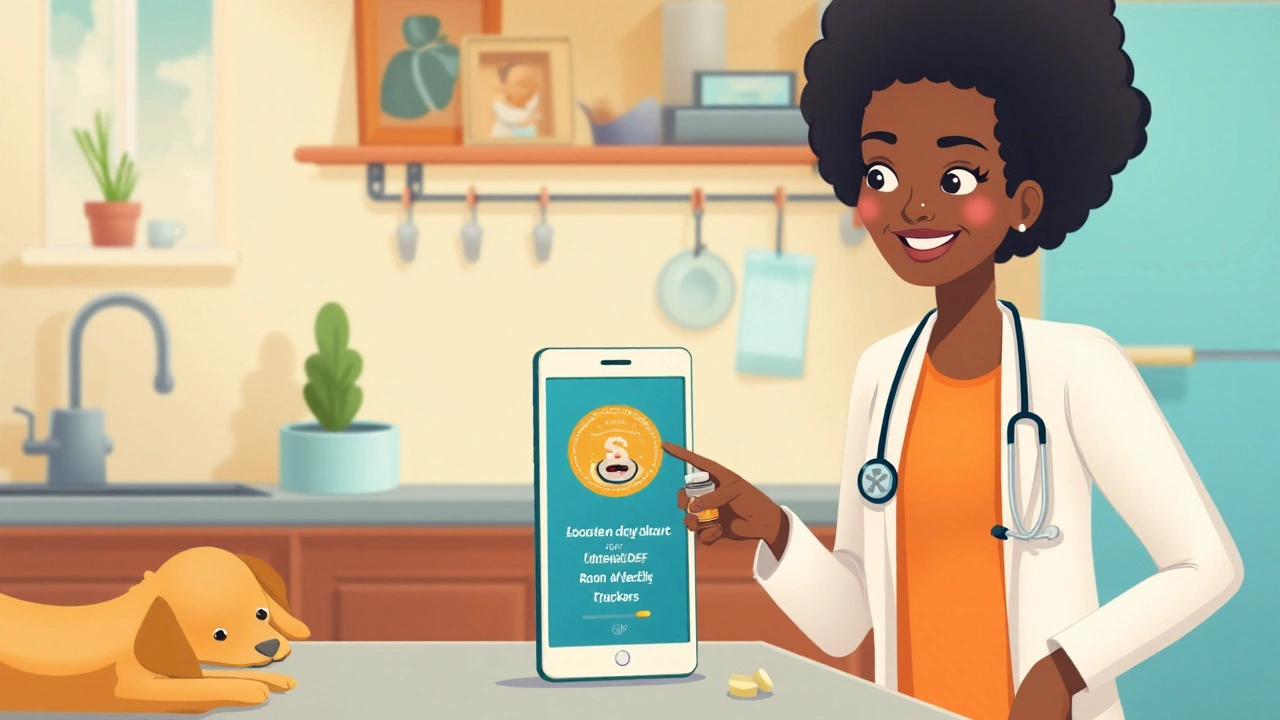Blood Pressure Pill Adherence Checker
Enter how many doses you missed in a typical week (0‑7):
Blood pressure pills are a group of antihypertensive medications prescribed to lower systolic and diastolic pressure, reduce cardiovascular risk, and keep hypertension under control. Skipping a dose or taking them at random times feels harmless, but the body’s chemistry doesn’t work that way. This article explains why consistency matters, the science behind it, and how you can build a routine that sticks.
TL;DR
- Take your pill at the same time each day to keep drug levels steady.
- Irregular use raises the chance of spikes in blood pressure and heart attacks.
- Choose a schedule that fits your daily rhythm - morning, night, or with meals.
- Use tools like pill boxes, phone alarms, or habit‑stacking to stay on track.
- Regular monitoring and open talks with your doctor help fine‑tune the plan.
How Consistency Affects Blood Pressure Control
The goal of any antihypertensive regimen is to keep the arterial pressure within a target range (usually < 130/80mmHg for high‑risk patients). When you take a medication adherence practice of following the prescribed dosing schedule plan, the drug’s concentration stays inside the therapeutic window - the sweet spot where the pill works without causing side effects.
Most blood pressure pills have a half‑life between 8 and 24hours. For example, an ACE inhibitor like lisinopril stays active for about 12hours. If you miss a dose, the plasma level drops below the effective threshold, allowing blood pressure to creep up. A single missed dose can raise systolic pressure by 5-10mmHg, which on its own may not seem huge, but repeated spikes accumulate and increase the risk of stroke or heart attack.
What the Numbers Say
Large cohort studies from the American Heart Association (2022) tracked 18,000 hypertensive adults over five years. Participants with >90% adherence saw a 22% reduction in cardiovascular events compared to those with <70% adherence. Another Canadian registry (2023) reported that patients who took their pills within a two‑hour window each day had 15% lower odds of developing chronic kidney disease.
Pharmacology Behind the Scenes
Different drug classes behave uniquely, which is why timing matters more for some than others. Below is a quick snapshot of the most common classes.
| Class | Mechanism | Typical Dose Frequency | Common Side Effects | Example Drug |
|---|---|---|---|---|
| ACE inhibitor | Blocks conversion of angiotensin I to II | Once daily | Cough, elevated potassium | Lisinopril |
| ARB | Blocks angiotensin II receptors | Once daily | Dizziness, low potassium | Losartan |
| Beta blocker | Reduces heart rate and contractility | Once or twice daily | Fatigue, cold extremities | Metoprolol |
| Calcium channel blocker | Relaxes vascular smooth muscle | Once daily | Swelling, flushing | Amlodipine |
Notice that most classes are designed for once‑daily dosing, which simplifies routine building. Beta blockers sometimes require split dosing because of a shorter half‑life, so missing a midday dose can cause a noticeable rebound in pressure.

Practical Tips to Stay Consistent
- Link the pill to an existing habit. Take it right after brushing your teeth in the morning or before your evening cup of tea.
- Use a pill organizer with compartments for each day of the week. Fill it every Sunday night.
- Set a phone alarm with a label like “BP med - stay steady”. Phones rarely fail you.
- If you travel across time zones, adjust the schedule gradually - add or subtract 30minutes each day until you align with the new local time.
- Keep a simple log (paper or app) noting the date and time you took the dose. Seeing a streak can boost motivation.
When You Miss a Dose
Don’t panic. The general rule: if it’s been less than 12hours, take it as soon as you remember. If it’s been longer, skip the missed dose and resume your regular schedule. Taking a double dose to “catch up” can cause a dangerous dip in pressure, especially with ACE inhibitors or ARBs.
Talk to your physician about creating a “missed‑dose plan” tailored to the specific drug you’re on. Some clinicians advise a short‑acting rescue medication (like a low‑dose diuretic) if you anticipate frequent gaps.
Integrating Monitoring and Feedback
Home blood pressure monitors give immediate feedback on how your routine is working. Aim for two readings each morning and two each evening for a week, then average them. If you notice a pattern of higher readings on days you skip or take the pill late, that’s concrete proof to reinforce consistency.
Share these logs with your healthcare provider during appointments. They can adjust the dose, switch to a longer‑acting formulation, or suggest a combination pill that reduces pill burden.
Common Misconceptions
- "I only need to take the pill when my pressure is high." Blood pressure fluctuates; the medication works by keeping the baseline low, not by reacting to spikes.
- "All pills are the same, timing doesn’t matter." Half‑life, food interactions, and renal clearance differ across classes, so timing can affect efficacy.
- "If I feel fine, I can stop taking them." Hypertension is often silent. Stopping abruptly can cause rebound hypertension, which may lead to a heart attack.
Next Steps for Readers
Start by auditing your current routine: write down what time you usually take your dose and where you keep the bottle. Compare that with the suggested best‑practice times for your drug class (see the table). Pick one habit‑stacking cue and a reminder tool, then track for two weeks. If blood pressure readings stay stable, you’ve built a solid foundation.
Future topics you might explore include "How Combination Pills Reduce Pill Burden" and "Understanding Drug-Food Interactions for Hypertension".

Frequently Asked Questions
What happens if I miss a single dose of my blood pressure pill?
If it’s been less than 12hours, take the missed dose right away. If more time has passed, skip it and resume the normal schedule. Doubling up can cause a sudden drop in pressure, which may trigger dizziness or fainting.
Do I need to take my pill at the exact same minute every day?
A window of about one hour is acceptable for most once‑daily medications. Consistency within that window keeps drug levels steady enough for therapeutic effect.
Can I take my blood pressure medication with food?
Some classes, like ACE inhibitors, are fine with food, while others, such as certain beta blockers, are best taken on an empty stomach for optimal absorption. Check the specific instructions on your prescription label.
Why do some doctors prescribe a combination pill?
Combination pills blend two antihypertensive agents (often an ACE inhibitor with a diuretic) into one tablet. This reduces the number of pills you need to remember, improving medication adherence and often achieving better blood pressure control.
How often should I check my blood pressure at home?
Aim for two readings each morning and two each evening for at least a week. Record the averages and bring them to your doctor’s next visit. Consistent monitoring helps spot trends linked to missed doses.

